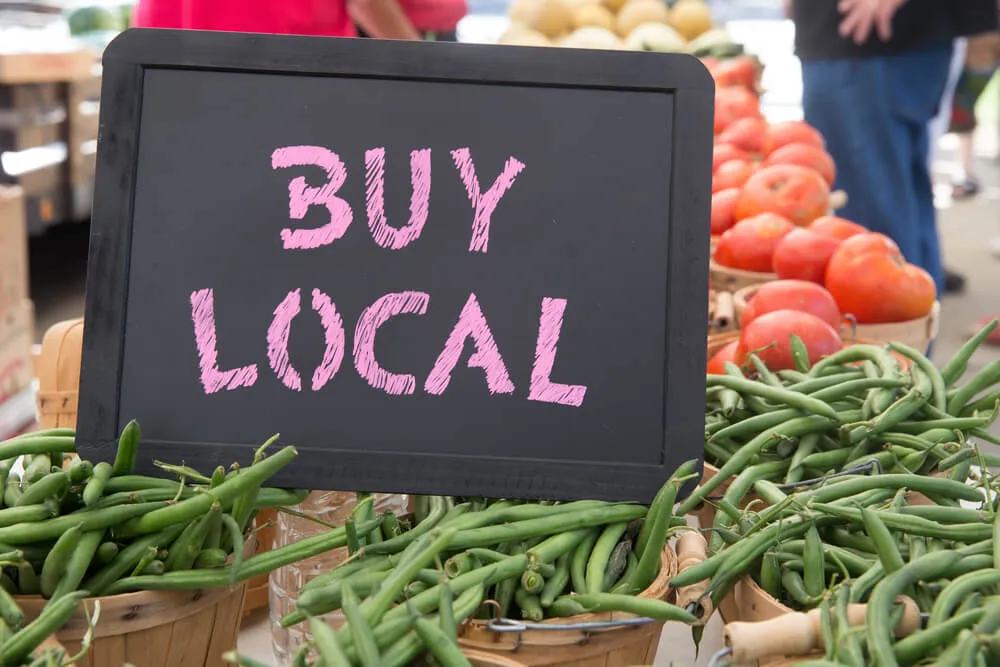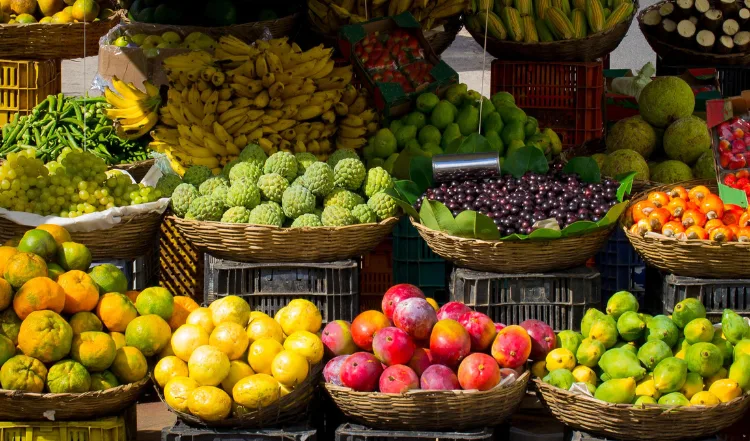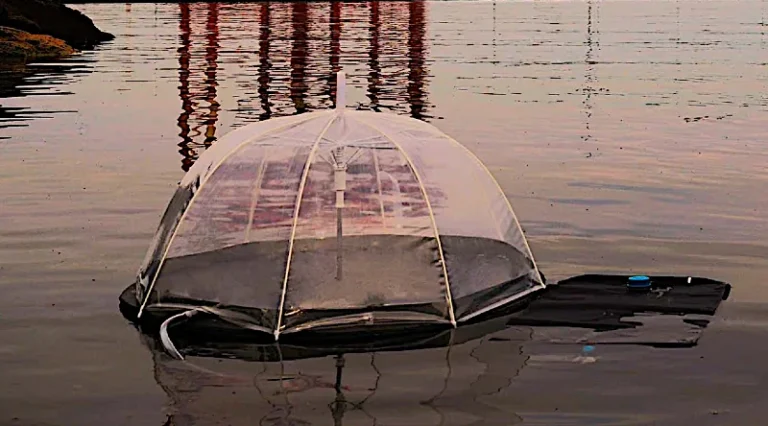Before you can start to put up a bunch of food throughout the year, you need the produce to work with.
While you can certainly head to your local grocery store to pick up 20 pounds of green beans to can, it’s probably not your best option.
Not only will it cost you quite a bit, even if green beans happen to be on sale that week, you also don’t usually get the best quality food at your grocery store.
It should go without saying that you should look for produce that’s local and in season in your area. That’s where you’ll find the best deals.
Every once in a while, you may even get lucky and have a friendly neighbor who shares his bumper crop with you.
If you’re not quite that lucky, here are your best bets for finding great deals on seasonal, local produce.
Hit The Farmers Market Late In The Day
A great strategy is to head to your local farmer’s market close to the time everyone is ready to pack up and call it a day.
Farmers know they won’t sell much more, and the last thing they want to do is pack all this produce back up and take it back.
You can make a deal and buy a lot of fresh food at a fraction of the cost you usually would.
Of course, you have to be ready to take it home and start working on freezing, pickling and canning right away.
Get To Know Farmers In Your Area
While you’re hanging out at the farmers market, get to know the farmers in your area. Talk to them, buy from them, go check out the farm.
As you start to grow that relationship, you’ll find that you’re able to get some great deals on fresh produce. You may be able to work out a “pick your own” type deal, where you go out to the farm and harvest what you need yourself.
Or you may be able to get a great deal on excess produce that the farmer isn’t able to sell in time.
As you get to know one or two farmers, they can also introduce you to others in the area.
Get Together With Others To Buy In Bulk
Often the best deals are to be had when you can buy large quantities of any product.
When we’re talking about buying straight from the farmer, that may mean far more of any one piece of produce than you could possibly need.
Yet, because of the price, this can still be well worth it. The solution is simple.
Get together with a few other families interested in buying and preserving local, seasonal food. You go in and buy the larger quantities together and divide them between each other.
Everyone gets a much more manageable amount of fruits and veggies to put up while still being able to take advantage of a great deal.
The next question is of course how you find these people.
You find them at the farmers market and at the farms themselves. Talk to other shoppers as you come across them. Get to know them, exchange ideas and resources, and eventually talk about taking advantage of build ordering by going in to buy together.
Preserving and storing food is becoming a bit of a lost art, and it’s a shame.
- What do you do when you come across a great deal at the grocery store or the farmers market?
- What do you do when you’re offered a deal on a bushel of produce that you can’t pass up?
- What do you do when you have a bumper crop of green beans, squash, or tomatoes?
There’s only so much of any one food you can eat before you get sick and tired of it. If you know how to preserve it, you can put it up and use it throughout the year.

How to Prevent Food Waste After All That Savings
Freeze It
A great place to start is by freezing food. You can cook up your harvest in some of your favorite freezer friendly foods, or clean and precook them and toss them in the freezer.
This is also a great way to store fruits like berries and peaches that don’t last long once they are ripe.
The only disadvantage to freezing food is that you’re limited by the amount of room you have in your freezer.
Be sure to get in the habit of labelling frozen food well, so you know what it is before you pull it out to thaw and how long it’s been sitting in the freezer.
Can It
Canning is one of the most versatile ways to preserve food. You can make and can anything from jelly and pie filling to chili and green beans.
Canning has the added advantage of not taking up any space in your fridge and freezer. You can store your canned goods in the pantry, on a shelf in the kitchen, or anywhere in the basement.
Heck, I’ve been known to keep canned goods stuck under the spare bed if I’m running out of room. Properly canned food also stores a lot longer than any other method.
Dehydrate It
If you don’t have a lot of space, consider dehydrating food. You can start by using your oven on the lowest setting.
Try dehydrating some apple slices, or any type of food, to use in baking and cereal throughout the year. Then explore further and come up with fun snacks like kale chips, banana chips and even dried veggies that you can use in soup.
Pickle It
Another favorite old-fashioned way to preserve food is to pickle it.
Pickling involves submerging the produce in a brine made of salt, sugar, water, and various pickling spices.
The most common pickled item is of course pickles, and it’s a great place to start.
But don’t stop there.
You can pickle peppers, okra, cauliflower, and a wide variety of other veggies and even fruits. Play with it and see what you like. Pickled veggies make a great addition to sandwiches and salads throughout the year.
More To Discover
- A Quick Guide To Getting Started Dehydrating Food
- Color-Changing Lid Alerts to Spoiling Food: A Simple Solution to Save Your Groceries, Lower Food Waste
- Using Space as An Excuse? Why Anyone Can Compost Even in a Small Apartment or Balcony
- Sustainable Bottle Cap Alerts You to Food Freshness, Reducing Waste and Possible Illness
Cold Store It
Last but not least, let’s talk about the simplest way to store food. Things like root vegetables, apples, and cabbages store well in a dry, cool, and dark place.
This used to be the reason any house had a root cellar.
Today, your pantry might be a good place to store this type of food.
If you’re lucky enough to have a basement, you can set up some shelves to keep a lot of produce for months to come.















